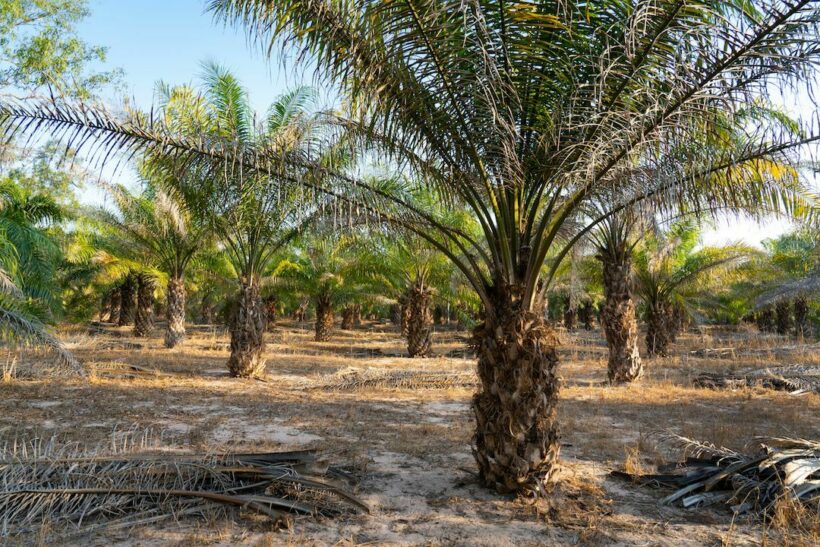After Indonesia’s export ban, palm oil producers promise price cap in Thailand

In the midst of the global palm oil crisis following Indonesia’s export ban, palm oil farmers, extractors, and producers are promising Thailand’s Internal Trade department that they will cap the price on the product. The Internal Trade Department’s chief said the 3 groups were told that an export ban may be considered if palm oil stocks fall below 300,000 tonnes.
Ahead of Indonesia’s export ban that began on April 28, palm oil extractors rushed to up their stocks. The 3 groups have now promised the Internal Trade Department that they will try to keep the palm oil price from 64-66 baht per litre. In shops, however, the price has already made its way to 69 and 70 baht per litre. In Krabi and Surat Thani, the price of palm oil seeds jumped to 12 baht per kilogram on Thursday.
Indonesia’s ban on exporting palm oil has plunged much of the world into a conundrum. Earlier this week, 2 ships were caught trying to smuggle the product from Indonesia to India and the United Arab Emirates.
There has been a palm oil shortage in Indonesia for the past month since the Russia-Ukraine crisis has impacted the supply of vegetable oil in the country, making palm oil more expensive. Indonesia is the world’s largest palm oil exporter. Palm oil is only grown in the tropics, and is by far the most consumed and traded edible oil in the world. Now that palm oil prices have skyrocketed, prices of other vegetable oils have now gone up as well, such as soybean and sunflower oil.
In Thailand, the jump in the palm oil price comes on top of jumps in prices on diesel, postal services, and meat.
SOURCE: Thai PBS WORLD
Latest Thailand News
Follow The Thaiger on Google News:


























